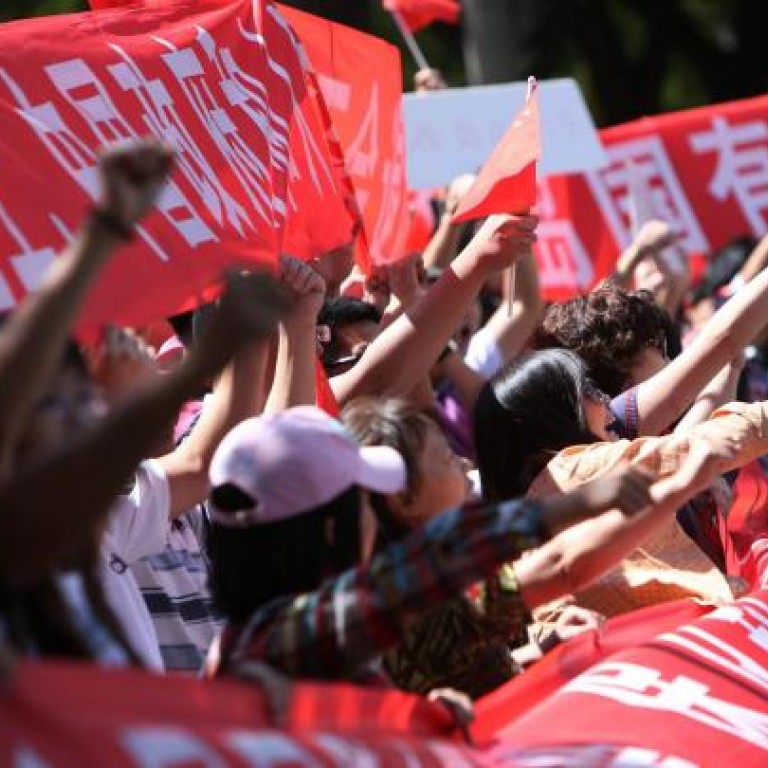
Japan's Diaoyus buy may harm trade ties with China
The country's economic ties with China will be severely damaged by its move to nationalise the chain of disputed islands, analysts warn
Japan's plan to nationalise a chain of disputed islands in the East China Sea would harm not only Sino-Japanese political relations, but also economic ties between the region's two largest economies, analysts said.
Professor Sun Lijian, a senior economist at Fudan University, said: "Domestic nationalism in China is so overwhelming at the moment … The nationalisation of the islands would strongly damage the Sino-Japanese economic relationship."
Jin Baisong, a researcher with the Chinese Academy of International Trade and Economic Co-operation under the Ministry of Commerce, told the China News Agency that Beijing might impose formal economic sanctions on Japan.
"Economic sanctions would make the Japanese government understand that it must pay a steep price for its provocations at the Diaoyu Islands," he said.
China is the single largest purchaser of Japanese goods. Last year, it accounted for 20.6 per cent of Japan's total exports, nearly three times the figure from a decade earlier, revealed a report by the Japan External Trade Organisation, a Japanese-government-backed organisation that provides information on trade.
Dai Hakozaki, deputy director general of the organisation's Beijing office, said the move to nationalise the islands would "have a very bad impact on Japanese exporters".
After the Japanese government announced in July that it planned to buy the islands, which it calls the Senkakus, sales of Japanese cars in China dropped 2 per cent the following month, compared with last year's figures, while overall car sales grew 11 per cent, according to data released by the China Association of Automobile Manufacturers.
Dong Yang, the association's secretary general, was quoted by Chinese media as saying that the slowdown in Japanese car sales was related to the recent political dispute.
Professor Zhou Yongsheng, a Japanese-affairs expert at the China Foreign Affairs University, said the Japanese tourism industry could also be affected by the diplomatic row as some Chinese opt to stay away from Japan.
Wang Zhuli, a spokeswoman for Caissa International Travel Service in Beijing, said: "Some tourists … have already cancelled their planned tours to Japan." She added that the company recently removed from its website promotional pictures of Japan tours.
An expert on Japanese affairs at the China Institutes of Contemporary International Relations, Professor Liu Junhong, said the Japanese government would most likely want to end the territorial stand-off as the nation has become reliant on China's economy. He also noted that Japan may see fewer chances of getting involved in projects in China as local governments choose to extend offers to other countries instead.
Two years ago, China temporarily halted shipments of rare-earth minerals to Japan after it detained the captain of a Chinese fishing boat that had entered the disputed sea area. The move dealt a blow to Japanese manufacturers of hi-tech products, as rare earths are essential materials in some industries, such as in the making of digital cameras or gas-electric hybrid vehicles.
